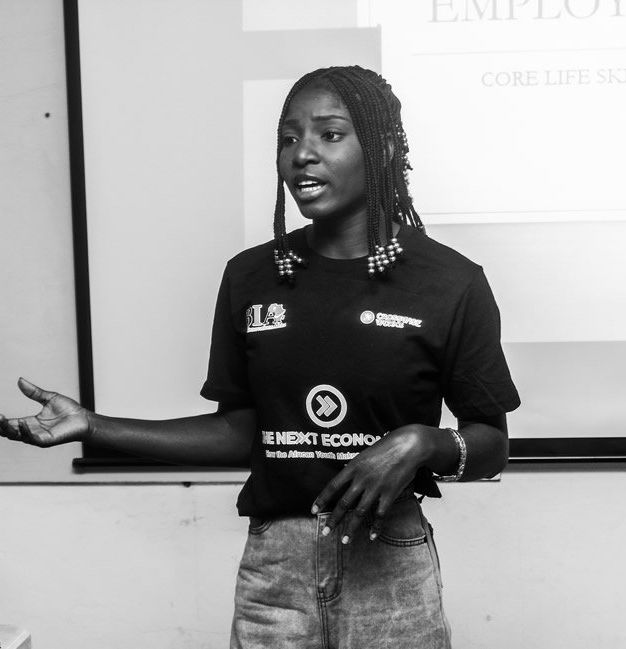
Breaking New Boundaries and Learning New Lessons
In addition to creating impact, ensuring ongoing sustainability and creating new channels are key priorities for African entrepreneurship support organizations (ESOs). The Next Economy program (TNE) operates through a network of experienced ESO partners deeply connected to the communities they serve. Beyond implementation, TNE emphasizes strengthening ESO partners to continue their good work and positive impact post-program. We promote inquiries into maintaining relevance, adopting innovative approaches and business models, and creating relevant programs that enhance ESO autonomy.
Diwy Tomassen led the implementation of The Next Economy program for many years at Crosswise Works, and from her experience, she identifies that a common pattern is that “though hubs feel like they need financial injections they rarely know for what or how much”. The TNE Challenge Experiment was introduced at the start of the second phase of the program in 2020 as an attempt to inspire hubs and ESOs to think of new ways to solve their unique sustainability challenges. “By creating a competition we wanted to engage them on a competitive level whilst providing them with a coach to guide them through the process of thinking for themselves what they needed, rather than deciding what we think they needed”, Diwy explained.
But how was this helpful to the ESOs? For Impact Hub Bamako, a major unique challenge was post-programme support for beneficiaries who hoped to receive more training and information but couldn’t find it. This challenge affected program continuity and the Impact Hub’s ability to receive new cohort applications. The TNE Challenge provided the push that Impact Hub needed to organize their alumni communities through groups on Facebook and WhatsApp, facilitate peer-to-peer coaching, and test mentoring activities for participants. According to Diack Doumbia, who coordinates programs at the Hub, “the experiment had a significant impact on the growth and sustainability of our organization. By engaging alumni, we were able to leverage their support and advocacy, which resulted in an increase in the number of participants in the hub. Alumni play a crucial role as brand advocates, and their involvement helps us attract more individuals to join our community and benefit from our programs and activities”.
Similarly, Aspilos Foundation in Nigeria created an alumni community on Telegram. However, the challenge extended to motivate alumni to actively engage with one another and internally create solutions to common problems. The TNE Challenge provided Aspilos the opportunity to organize several networking activities and co-creation sessions for alumni. Immediate results of these new approaches included the alumni community becoming a platform for sharing employment opportunities that some alumni members benefited from.
Supporting hubs through the TNE Challenge to strengthen their sustainability had far-reaching significance. Diwy Tomassen recalls that, “we were able to create some awesome new products and services, such as nHhub’s radio show in Jos, Shaqodon’s employment platform (Shaqo.com) in Somalia, and innovative ways of using social and regular media to source for the programme in Mali”. While nonprofits and entrepreneurship support organizations do the important work of creating economic access to young people in their communities, sustaining their impact demands support. TNE Challange’s ability to spark innovative solutions underscores the significance of enabling exploration in building organizational sustainability from the ground up.

